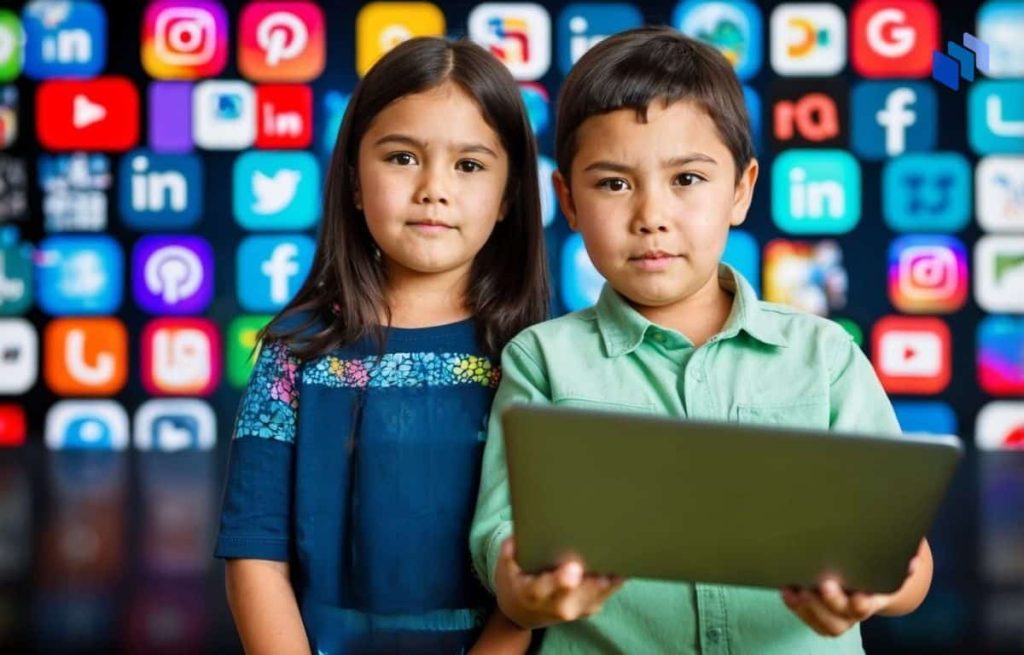
The Australian government has announced plans to introduce groundbreaking legislation aimed at banning children under the age of 16 from using social media. Prime Minister Anthony Albanese described the proposed laws as “world-leading,” designed to protect children from the harmful effects of online platforms.
Albanese emphasized that the move was motivated by growing concerns among parents about the safety of their children online. “This one is for the mums and dads… They, like me, are worried sick about the safety of our kids online. I want Australian families to know that the government has your back,” he said.
The legislation, which is expected to be tabled in parliament next week, would not immediately affect children already using social media. However, it would set a firm age limit of 16, meaning no child under this age could join social media platforms in the future. The government has stated that no exceptions will be made, even for children whose parents consent. Social media platforms would be held responsible for ensuring they are taking reasonable steps to prevent underage users from accessing their services.
Importantly, the law would not penalize young users but would task Australia’s eSafety Commissioner with enforcing the rules. The government has said that once passed, the law would come into effect 12 months later, with a review scheduled after it has been implemented.
Debate Over Effectiveness of a Ban
While there is broad consensus that social media can be harmful to the mental health of young people, experts remain divided over whether an outright ban is the best solution. Some critics argue that such measures simply delay young people’s exposure to platforms like TikTok, Instagram, and Facebook, rather than equipping them with the skills needed to navigate the challenges of online spaces.
Previous attempts to restrict social media use, including in the European Union, have faced significant challenges. These efforts have either failed or encountered backlash from tech companies, which have resisted such regulation. Moreover, there are concerns about how effective the ban could be, given that young people often find ways to bypass age-verification systems.
Child Rights Groups Criticize the Ban
The proposed ban has drawn criticism from child rights organizations, with some calling it an overly simplistic approach. The Australian Child Rights Taskforce, which includes over 100 academics and 20 civil society groups, wrote an open letter to the government in October urging it to reconsider the ban. Instead of a blanket prohibition, the group recommended that the government focus on enforcing safety standards for social media platforms to better protect children.
The Taskforce also cited recommendations from the United Nations, which advises that policies regulating online spaces should not just aim to restrict access, but also ensure that children can safely benefit from digital engagement. They emphasized that social media could provide opportunities for learning and connection if used responsibly.
Grassroots Campaigns Support the Ban
Despite the backlash, some grassroots campaigns strongly support the government’s proposed measures. The 36Months initiative, which has gathered more than 125,000 signatures, argues that children under 16 are not equipped to navigate social media safely. The petition warns that excessive social media use is harming young people’s mental health and rewiring their brains during a critical period of psychological development.
Campaigners cite the rise in mental health issues among adolescents, such as anxiety, depression, and body image concerns, which they believe are exacerbated by social media. They contend that restricting access until children reach the age of 16 would help protect them from the dangers of online content, misinformation, and cyberbullying.
Government’s Position on Education vs. Regulation
When questioned about the need for broader education on online safety, Albanese argued that simply teaching children about the risks and benefits of being online would not be sufficient. He explained that this approach “assumes an equal power relationship” between children and tech companies, which is not the case.
“I don’t know about you, but I get things popping up on my system that I don’t want to see. Let alone a vulnerable 14-year-old,” Albanese remarked, underscoring the power of tech companies and the algorithms that drive user behavior on social media platforms. He argued that these companies have immense influence over what content young users are exposed to, often pushing them toward harmful or addictive behavior.
Albanese’s comments reflect a growing concern about the influence of social media platforms on children and teenagers, especially given the pervasive nature of online content and the challenges parents face in protecting their children from harmful material.
Looking Ahead
As the legislation moves forward, the debate around social media regulation for young people is expected to intensify. While the government’s proposed ban is aimed at addressing the growing mental health crisis among children, critics argue that more nuanced approaches, such as enhanced safety standards and better education, may be more effective in the long run. Regardless, the issue is likely to remain a significant topic of discussion as policymakers and experts work to strike a balance between online safety and digital freedom.







